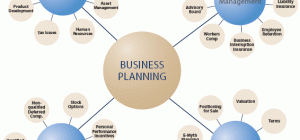 Just as products have a shelf life, business contracts have a lifecycle that begins from the initial planning phases and extends throughout the duration of these agreements. Contract lifecycle management is an essential part of the modern business world and encompasses a wide range of activities, including the following:
Just as products have a shelf life, business contracts have a lifecycle that begins from the initial planning phases and extends throughout the duration of these agreements. Contract lifecycle management is an essential part of the modern business world and encompasses a wide range of activities, including the following:
• Creating mutually beneficial agreements that suit the needs of both parties
• Negotiating areas where opposing interests may present difficulties
• Making necessary alterations to contract language and clauses to reach a consensus
• Approving final contract documents to put the agreement into action
• Storing the contract documents in a secure location for retrieval as needed by staff members and for future reference
• Monitoring contract obligations and establishing deadlines for various milestones
• Tracking and recording performance statistics to ensure ongoing compliance
• Evaluating the contract to determine if it should be renewed or dropped at the end of the agreement period
Contract management software packages typically incorporate features designed to streamline all these activities. Understanding the stages of the contract lifecycle can provide added insight for your company in managing these binding agreements more effectively.
Before signing
Comprehensive contract management software systems usually allow customization of pre-loaded templates to create forms uniquely suited to the company’s business model. By storing boilerplate language and frequently used contract templates in the software system, companies can save time when drawing up new client or vendor contract agreements. Once a draft contract has been completed, the negotiation process begins. While some clients and vendors will accept the first version of the proffered contract, others may require several rounds of editing and altering the language and terms of the contract before signing off on the finished product. Contract management systems make it easy to track changes and share electronic documents quickly and efficiently.
Approval and implementation
Contract management software suites typically include electronic signing and document transfer features that can speed up the signing process to a significant degree. Once the final version of the contract has been signed and certified, it can be stored in the central repository created by the software package. In some cases, documents are stored on-site in corporate servers and accessed through the company network; other configurations provide access through secure login technology and maintain the data in remotely hosted server arrays. By creating a searchable central repository for documents and data, contract management software allows easy retrieval of contract information and provides access for advanced reporting and monitoring features.
Tracking and evaluation
Monitoring vendor performance can help companies determine whether or not to renew a contract at its natural expiration. Compiling and evaluating performance reports by hand can be time-consuming; worse yet, errors in figures or in calculation can skew the results of these manual analysis methods. The reporting features and tracking alerts provided by contract management software packages can provide more information and reliable data for managers, allowing them to make the most cost-effective decisions when renewal time rolls around.
By incorporating contract management software solutions into existing workflows, companies can boost staff productivity and ensure the quality of their contractual agreements from start to finish.
Buffy M. has been a tech writer for over a decade. With clients like Apple, HP and Oracle, she has seen the huge wave of change that has occurred over the last 12 years. Her passion is all-things-geek, and she regularly researches for more information in her free time.




![Awesome Things You Need in Your Office [According to Officeprinciples.com]](https://lerablog.org/wp-content/plugins/wp-thumbie/timthumb.php?src=http://lerablog.org/wp-content/uploads/2014/10/image1-300x199.jpeg&w=300&h=140&zc=1)


